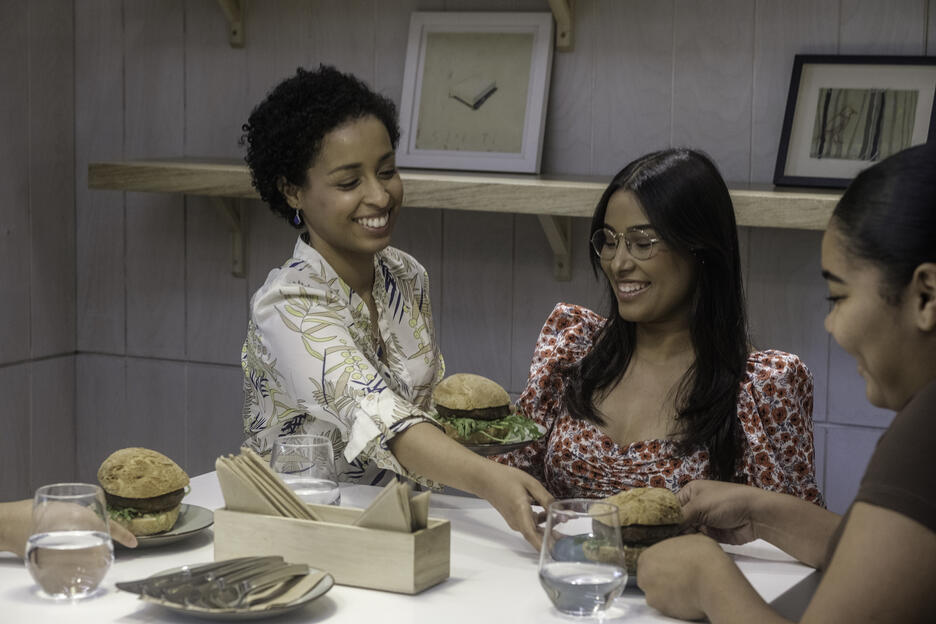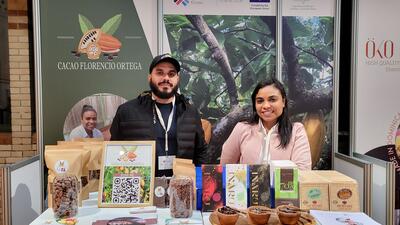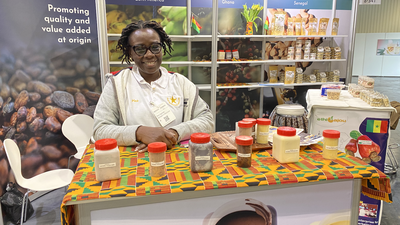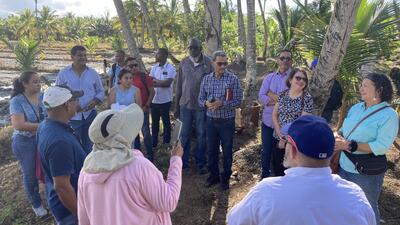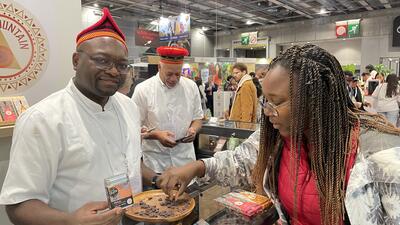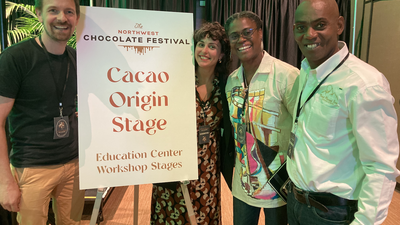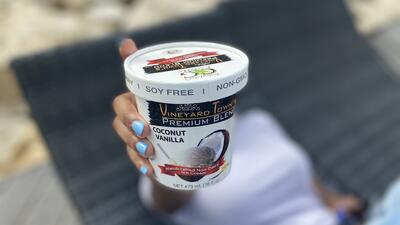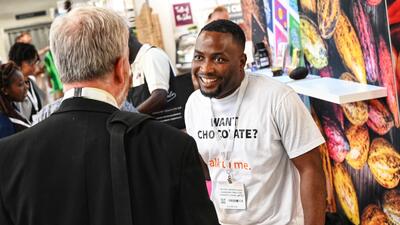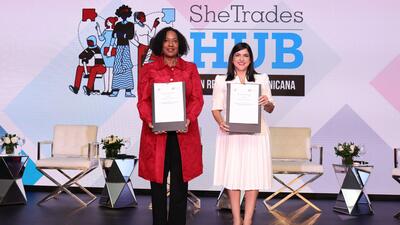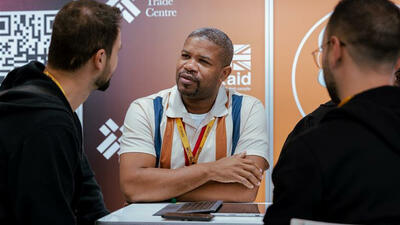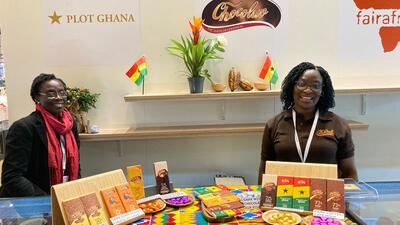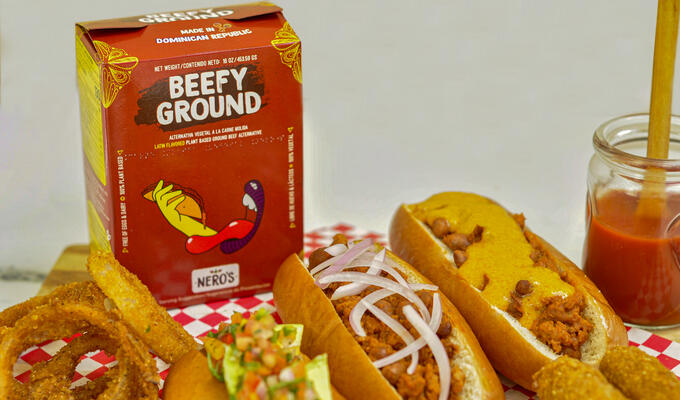
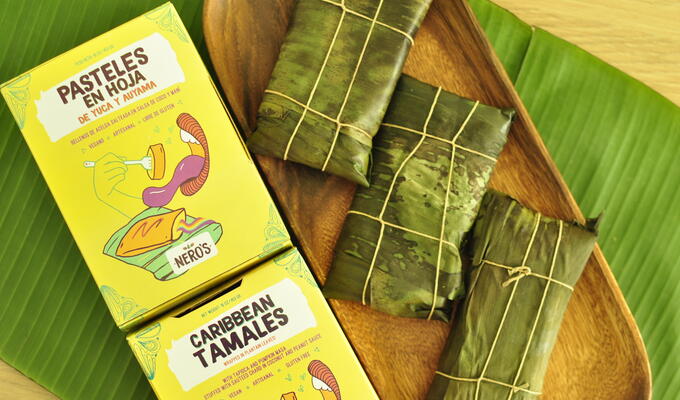
Winning over the vegan food market with a twist
Using biotechnology, entrepreneur Lidia Díaz from the Dominican Republic sets out to conquer the frozen vegan food market. In a creative manner, she caters to the needs of conscious consumers who care for their health and the environment – and at the same time supports her local community. Read her story.
Plant-based meat may be presented as a novelty, satisfying the growing vegan consumerism trend, but in fact it is anything but new. It is a thousand-year-old Asian tradition, developed at a time when transforming soy into mock-meat, to respond to the needs of a vast population, was a necessity, not a luxury.
But how do you market nutritious mock-meat to a mass audience? Lidia Díaz from the Dominican Republic has done just this.
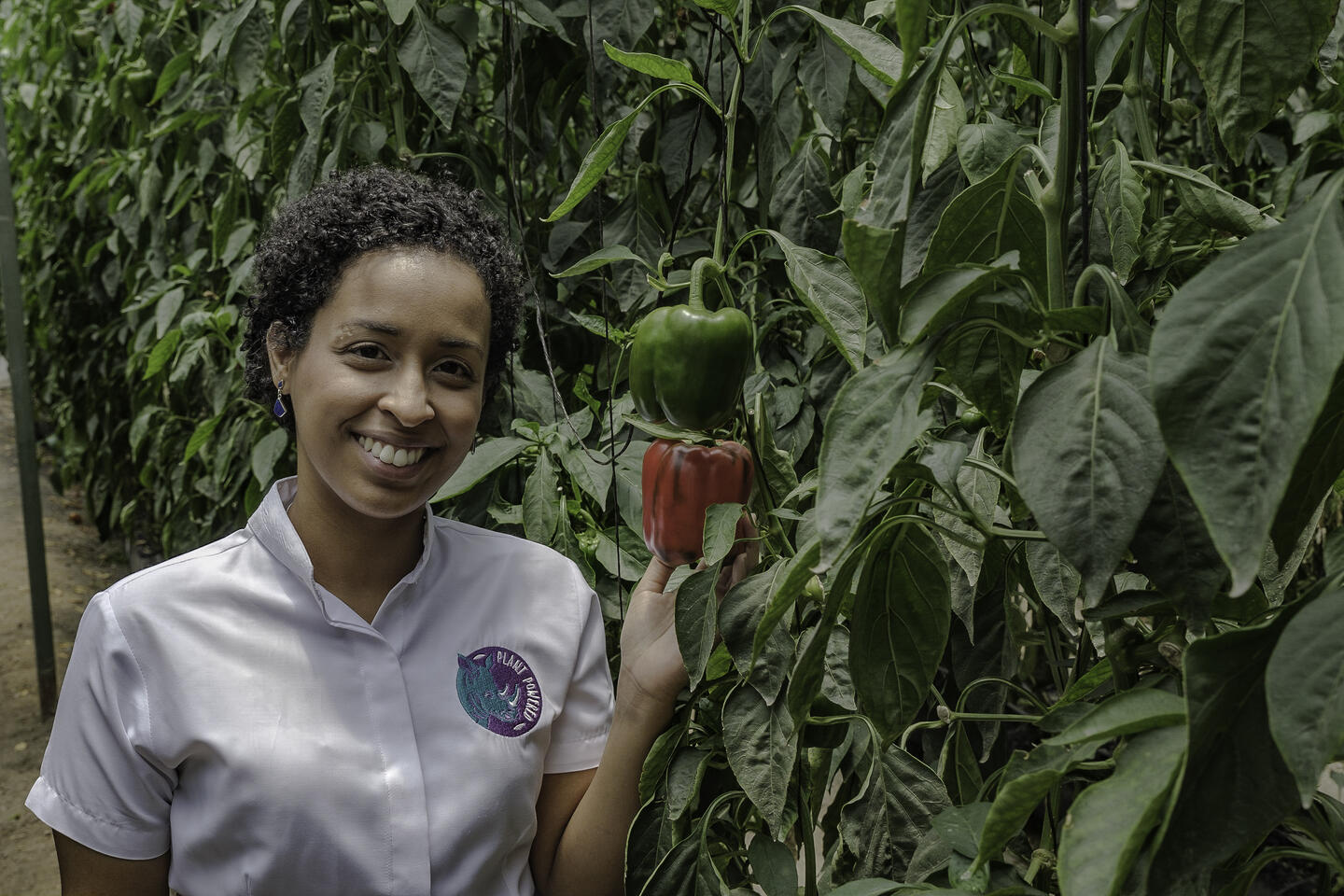
Lidia likes good food. She tells me that dieting is not an option because she loves her home country’s traditional dishes too much to resist temptation.
But 12 years ago, when Lidia was 21, she became aware of two things - the need to take care of her health and the devastating effects of meat production on the environment:
U.K. climate change website Carbon Brief released an interactive Q&A that shows exactly how much harm meat does compared to other foods. The meat and dairy industries create 7.1 gigatons of greenhouses gases annually—that is 14.5% of total man-made emissions. Another way meat contributes to climate change is by destroying forests and other habitats to make way for pasture (for more explanation on this data, read here).
Lidia’s passion for food biotechnology only came after she decided to become vegan. She had originally studied philosophy and has a bachelor’s in business administration and marketing, which later would come in handy.
After studying the principles of making mock-meat and other animal protein alternatives, Lidia gave her home dishes a new twist, turning her favourite meals into plant-based versions.
After a first unsuccessful attempt to deliver meals on demand, Lidia together with her co-founder Braulio Villalona, rethought her business model – and launched “Plant Powered” in 2017.
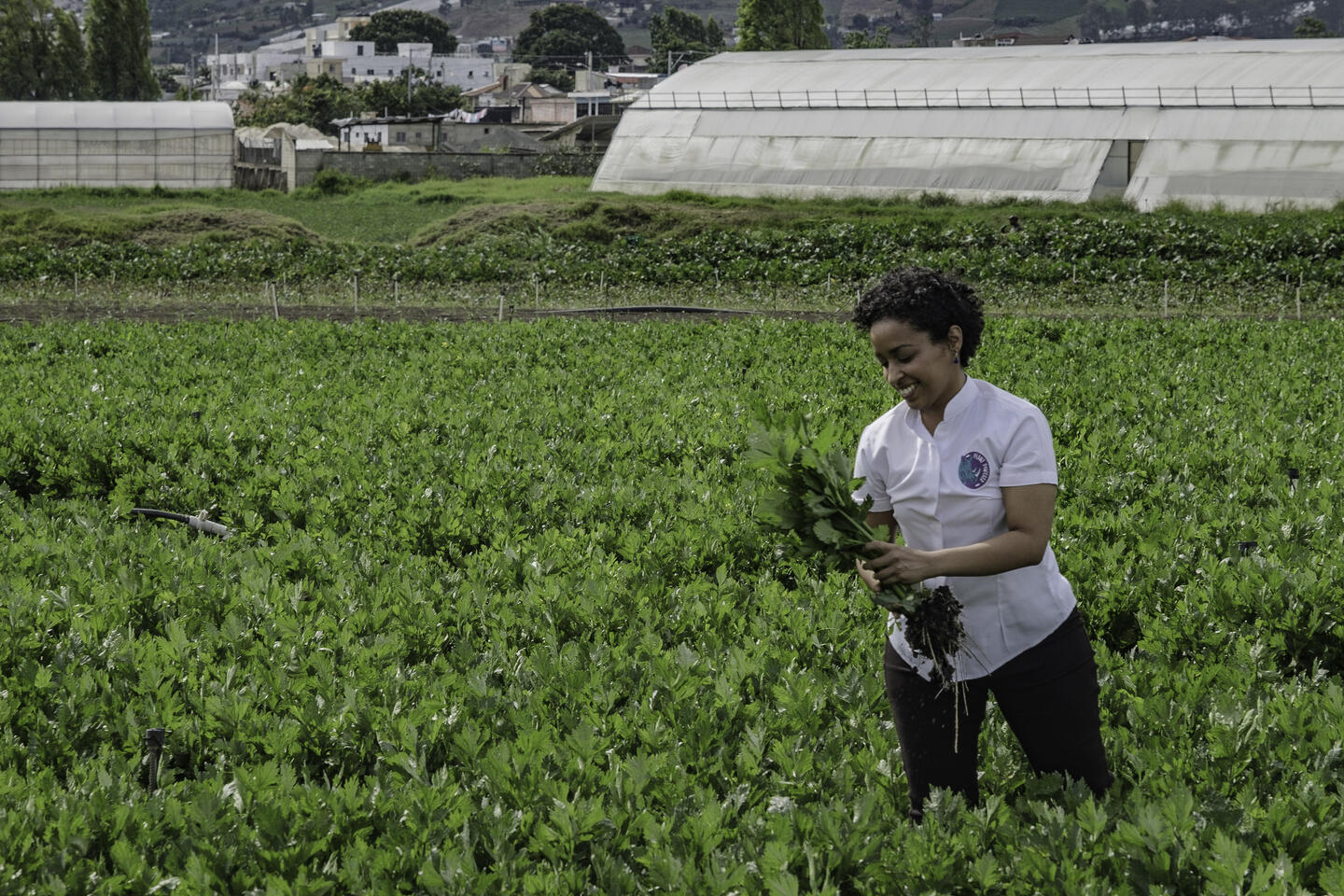
For Lidia, the answer lay in the retail industry. “We take produce that is popular, like Tamales, and offer a frozen version.”
Quickly, Plant Powered and its brand became popular in the Dominican Republic and reached the top of the market, despite the increasing numbers of vegan food imports. The company’s main advantage was the price: having local suppliers, the product price is low compared to imports.
However, the local market is limited; the Dominican Republic is still a developing country.
“Most people do not have the mentality or means to purchase these types of products every day.”
That is why in 2019 Plant Powered steered towards exporting.
Video
Setting up a business in the Dominican Republic is very easy. Lidia tells me that in seven days she was set. No certification was needed, which was lifesaving for a small start-up without capital. Exporting however, was a different story.
“We would lose if we tried to compete with big brands in international markets. We needed a new business plan.”
The company founders decided to target the main supermarket chains with products tailored to the local audience. For example, people in the United Kingdom could enjoy a vegan shepherd’s pie.
While the flavours are unique, consumers would connect them to something they already knew, tasting gluten-free gnocchi made of sweet plantain or yuca, or coconut milk-based ice cream with innovative flavours, such as Mojito.
It took the small business six months to be ready for the international market. Early in 2020, everything was set up for selling their products to two main supermarkets in Mexico, a country with low certification requirements and a big consumer market.
The sea transportation crisis meant that previous shipment costs of $250 turned into $8,000 by the end of 2020.
By June 2021, the situation had not improved; then Lidia enrolled in an ITC-sponsored programme that made her participation in two trade fairs in the United Kingdom possible.
The company made connections in the European market as well as securing a contract with a distributor in the United States for four retail chains on the East Coast. Powered Plant also was able to sign a contract with a distributor in Costa Rica and currently awaits approval from two of the biggest North American retail stories.
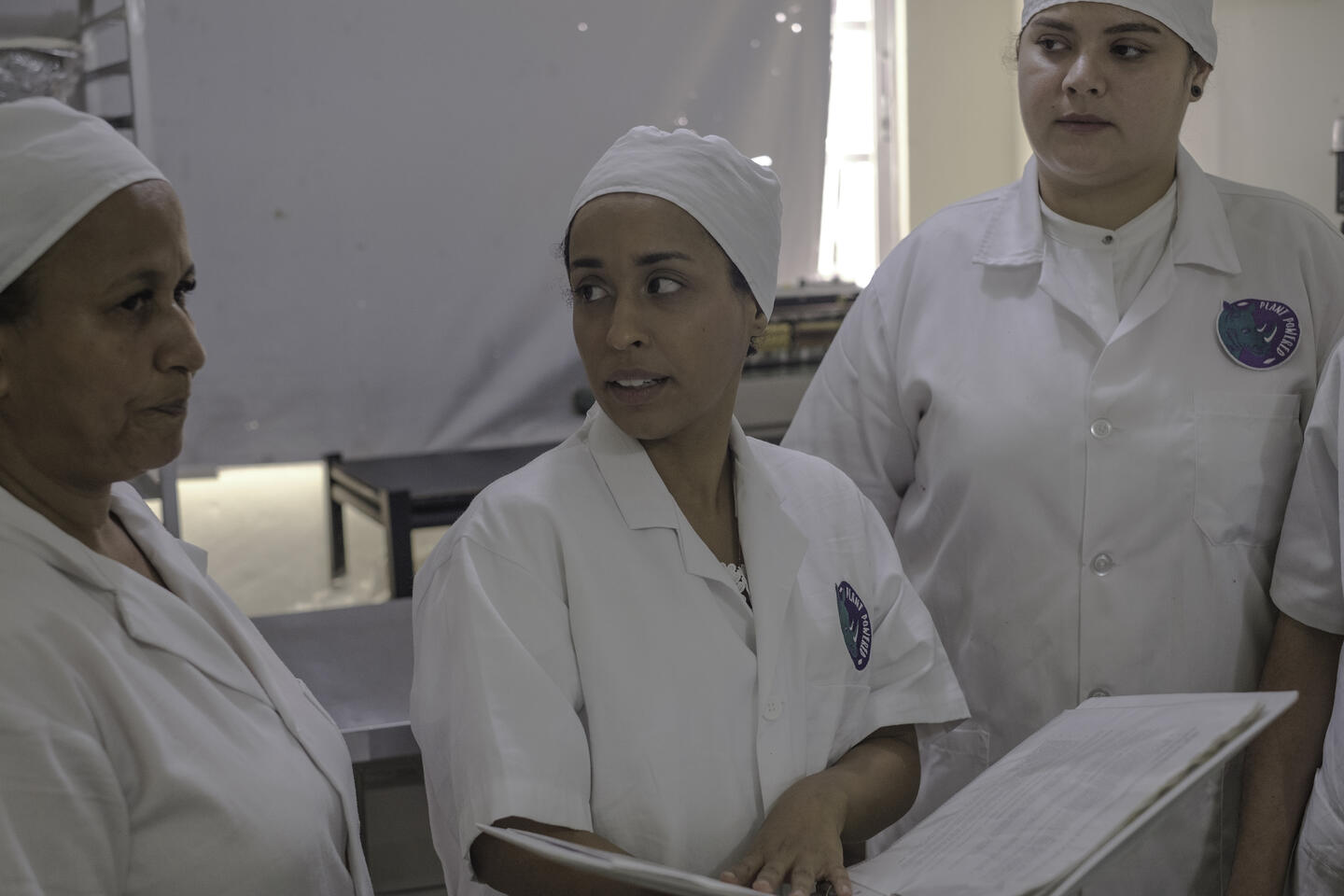
For Lidia, exporting does not only mean expanding her brand and making ends meet. It means bringing a positive impact to her own country.
“We directly impact the weakest link of the supply chains, the farmers, as most ingredients are local. We strengthen the economy by buying from them and bringing money from developed countries to our country.”
Of the 10 people that work for Lidia and her partner, seven are women. The company specifically supports women and youth by working with universities for internships and the institution INFOTEP which offers technical careers to young people from low-income families.
Along with focusing on the economy and community aspects, Plant Powered measures their CO2 footprint by substituting each pound of plant-based protein sold to consumers with the animal protein they would have consumed. The difference shows how much water, C02 and land use this has saved – the three main indicators companies measure for their sustainability reports.
“We make our reports public. This helps us to stay accountable. We can speculate, but numbers tell you exactly what you are achieving.”
In our first edition of the Youth Ecopreneur Awards, over 650 young ecopreneurs under age 35 pitched their green solutions for waste, water and energy challenges and the chance to win $5000, among other prizes from ITC and partners. Lidia is the winner of the International Trade Centre’s Youth Ecopreneur Awards 2021 for the water efficiency category. The Award recognizes and celebrates the efforts of young eco-entrepreneurs who are driving positive change.




